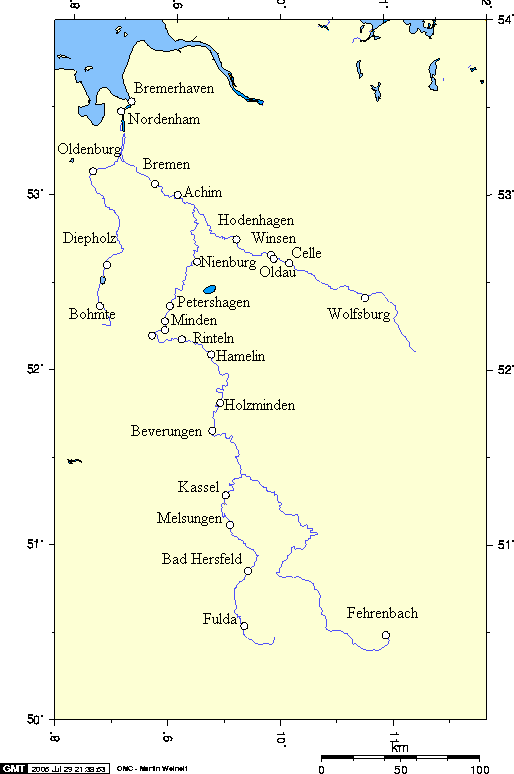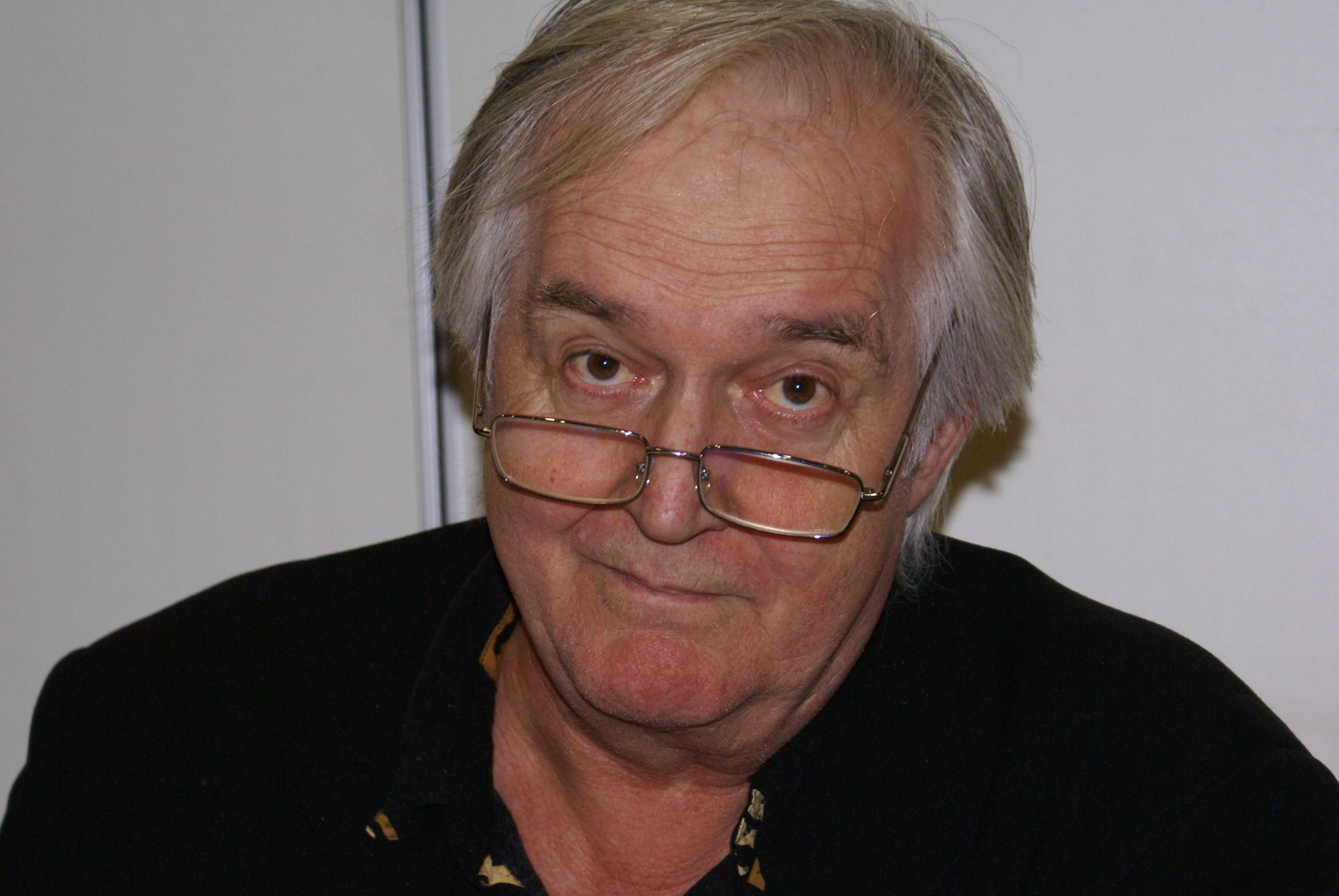|
Jörn Arnecke
Jörn Arnecke (born 1973, in Hameln) is a German composer. Arnecke is the professor of music theory, aural training, and historical music theory at the Hochschule für Musik Franz Liszt, Weimar. Life Arnecke studied composition and musical theory in Hamburg, Germany, at the Academy for Music and Theatre (''Hochschule für Musik und Theater Hamburg'') under Volkhardt Preuß and Peter Michael Hamel. In 1997/98, during his study, he was a student of Gérard Grisey at the Conservatoire National Superieur in Paris. Arnecke graduated in 2000 and since 2001 he has been part-time professor at the music academy in Hamburg. 2004 he was given a scholarship by the ''Bundeskünstlerförderung'' (federal artist support) for the ''Deutsches Studienzentrum'' in Venice and in 2007 one for Casa Baldi near Rome. During his studies and later on he has won many prizes, for example the ''Preis des Landesverbandes Sachen des Deutschen Tonträgerverbandes'' in 1999. Major works Opera * Ariadne (1999) ... [...More Info...] [...Related Items...] OR: [Wikipedia] [Google] [Baidu] |
Hameln
Hamelin ( ; german: Hameln ) is a town on the river Weser in Lower Saxony, Germany. It is the capital of the district of Hamelin-Pyrmont and has a population of roughly 57,000. Hamelin is best known for the tale of the Pied Piper of Hamelin. History Hamelin started with a monastery, which was founded as early as 851 AD. A village grew in the neighbourhood and had become a town by the 12th century. The incident with the "Pied Piper" (see below) is said to have happened in 1284 and may be based on a true event, although somewhat different from the tale. In the 15th and 16th centuries Hamelin was a minor member of the Hanseatic League. In June 1634, during the Thirty Years' War, Lothar Dietrich, Freiherr of Bönninghausen, a General with the Imperial Army (Holy Roman Empire), Imperial Army, lost the Battle of Oldendorf to the Swedish Dodo zu Innhausen und Knyphausen, General Kniphausen, after Hamelin had been besieged by the Swedish army. The era of the town's greatest prosperity ... [...More Info...] [...Related Items...] OR: [Wikipedia] [Google] [Baidu] |
Henning Mankell
Henning Georg Mankell (; 3February 19485October 2015) was a Swedish crime writer, children's author, and dramatist, best known for a series of mystery novels starring his most noted creation, Inspector Kurt Wallander. He also wrote a number of plays and screenplays for television. He was a left-wing social critic and activist. In his books and plays he constantly highlighted social inequality issues and injustices in Sweden and abroad. In 2010, Mankell was on board one of the ships in the Gaza Freedom Flotilla that was boarded by Israeli commandos. He was below deck on the MV Mavi Marmara when nine civilians were killed in international waters. Mankell shared his time between Sweden and countries in Africa, mostly Mozambique where he started a theatre. He made considerable donations to charity organizations, mostly connected to Africa. Life and career Mankell's grandfather, also named Henning Mankell, lived from 1868 to 1930 and was a composer. Mankell was born in Stockholm ... [...More Info...] [...Related Items...] OR: [Wikipedia] [Google] [Baidu] |
Hannah Dübgen
Hannah or Hanna may refer to: People, biblical figures, and fictional characters * Hannah (name), a female given name of Hebrew origin * Hanna (Arabic name), a family and a male given name of Christian Arab origin * Hanna (Irish surname), a family name of Irish origin Places United States * Hannah, Georgia * Hanna City, Illinois * Hanna, Indiana * Hanna, Louisiana * Hannah, Michigan * Hanna, Missouri * Hannah, North Dakota * Hanna, Oklahoma * Hannah, South Carolina * Hanna, South Dakota * Hanna, Utah * Hanna, West Virginia * Hanna, Wyoming * Hannah Run, a stream in Ohio Elsewhere * Hanna, Alberta, Canada, a town * Hannah, a small village in Hannah cum Hagnaby, a civil parish in Lincolnshire, England * Hana, Iran, a city in Isfahan Province * Hanna, Lublin Voivodeship, Poland, a village * Haná (German spelling: Hanna), an ethnic region in Moravia, Czech Republic * Hannah Island (Greenland) * Hanna Lake, a lake near Quetta, Pakistan Ships * , a destroyer escort acquired by the ... [...More Info...] [...Related Items...] OR: [Wikipedia] [Google] [Baidu] |
Expo 2000
Expo 2000 was a World Expo held in Hanover, Germany from 1 June to 31 October 2000. It was located on the Hanover Fairground (Messegelände Hannover), which is the largest exhibition ground in the world. Initially some 40 million people were expected to attend the exhibition over the course of months; however, eventually with less than half of this number, the Expo was a flop and turned out to be a financial failure. The Expo's masterplan was designed in a joint venture with Studio d'Arnaboldi / Cavadini, Locarno and AS&P (Albert Speer und Partner GmbH). History Background On 14 June 1990, the international organization sanctioning World Expos Bureau International des Expositions awarded Expo 2000 to Hanover, beating out Toronto by a 21 to 20 vote. In 1992, the architects Studio Arnaboldi/Cavadini of Locarno won an international design competition for the masterplan of the exhibition grounds. On 12 June that year, a survey conducted by the city council was made public showing o ... [...More Info...] [...Related Items...] OR: [Wikipedia] [Google] [Baidu] |
Rainer Kunze
Rainer may refer to: People * Rainer (surname) * Rainer (given name) Other * Rainer Island, an island in Franz Josef Land, Russia * 16802 Rainer Year 168 ( CLXVIII) was a leap year starting on Thursday (link will display the full calendar) of the Julian calendar. At the time, it was known as the Year of the Consulship of Apronianus and Paullus (or, less frequently, year 921 ''Ab urbe co ..., an asteroid * Rainer Foundation, British charitable organisation See also * Rainier (other) * Rayner (other) * Raynor * Reiner (other) * Reyner * {{dab ... [...More Info...] [...Related Items...] OR: [Wikipedia] [Google] [Baidu] |
Johann Wolfgang Von Goethe
Johann Wolfgang von Goethe (28 August 1749 – 22 March 1832) was a German poet, playwright, novelist, scientist, statesman, theatre director, and critic. His works include plays, poetry, literature, and aesthetic criticism, as well as treatises on botany, anatomy, and colour. He is widely regarded as the greatest and most influential writer in the German language, his work having a profound and wide-ranging influence on Western literary, political, and philosophical thought from the late 18th century to the present day.. Goethe took up residence in Weimar in November 1775 following the success of his first novel, ''The Sorrows of Young Werther'' (1774). He was ennobled by the Duke of Saxe-Weimar, Karl August, in 1782. Goethe was an early participant in the ''Sturm und Drang'' literary movement. During his first ten years in Weimar, Goethe became a member of the Duke's privy council (1776–1785), sat on the war and highway commissions, oversaw the reopening of silver min ... [...More Info...] [...Related Items...] OR: [Wikipedia] [Google] [Baidu] |
Robert Reinick
Robert Reinick (22 February 1805 – 7 February 1852) was a German painter and poet, associated with the Düsseldorf school of painting. One of his poems, ''Dem Vaterland'', was set to music by Hugo Wolf and another, ''The Flight into Egypt'' was the libretto for a cantata by Max Bruch. He wrote the libretto to Schumann's opera Genoveva. Reinick was born in Danzig (Gdańsk) and died in Dresden Dresden (, ; Upper Saxon: ''Dräsdn''; wen, label= Upper Sorbian, Drježdźany) is the capital city of the German state of Saxony and its second most populous city, after Leipzig. It is the 12th most populous city of Germany, the fourth .... References External links Biografie Bayerische StaatsbibliothekVertonung des Gedichts „Wie ist die Erde doch so schön”* * * 1805 births 1852 deaths 19th-century German painters 19th-century German male artists German male painters German poets Writers from Gdańsk People from West Prussia German male poets ... [...More Info...] [...Related Items...] OR: [Wikipedia] [Google] [Baidu] |
August Von Platen
August is the eighth month of the year in the Julian calendar, Julian and Gregorian calendars, and the fifth of seven months to have a length of 31 days. Its zodiac sign is Leo (astrology), Leo and was originally named ''Sextilis'' in Latin because it was the 6th month in the original ten-month Roman calendar under Romulus and Remus, Romulus in 753 BC, with March being the first month of the year. About 700 BC, it became the eighth month when January and February were added to the year before March by King Numa Pompilius, who also gave it 29 days. Julius Caesar added two days when he created the Julian calendar in 46 BC (708 Ab urbe condita, AUC), giving it its modern length of 31 days. In 8 BC, it was renamed in honor of Emperor Augustus. According to a Senatus consultum quoted by Macrobius, he chose this month because it was the time of several of his great triumphs, including the conquest of Egypt. Commonly repeated lore has it that August has 31 days because Augustus ... [...More Info...] [...Related Items...] OR: [Wikipedia] [Google] [Baidu] |




